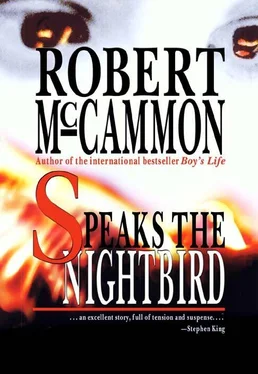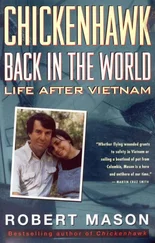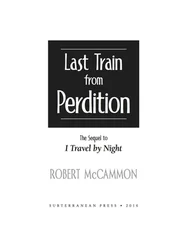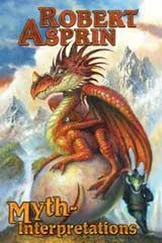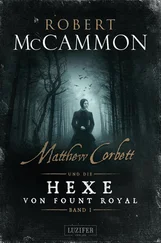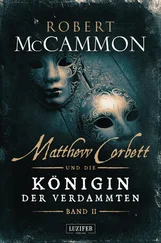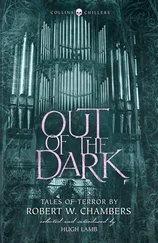"Christ Church. And you?"
"All Souls'."
"Ah, that was a magnificent time," Woodward said, but he rested his eyes on Bidwell because he found the schoolmaster more than a little strange in appearance. Johnstone wore a dusting of white facial powder and had plucked his eyebrows thin. "I remember many nights spent studying the bottom of ale tankards at the Chequers Inn."
"I myself preferred the Golden Cross," Johnstone said with a slight smile. "Their ale was a student's delight: very strong and very cheap."
"I see we have a true scholar among us." Woodward returned the smile. "All Souls' College, eh? I expect Lord Mallard will be drunk again next year."
"In his cups, I'm sure."
As this exchange between fellow Oxfordians had been going on, Matthew had been making his own cursory study of Alan Johnstone. The schoolmaster, slim and tall, was dressed in a dark gray suit with black striping, a white ruffled shirt and a black tri-corn. He wore a simple white wig, and from the breast pocket of his jacket protruded a white lace handkerchief. With the powder on his face-and a spot of rouge highlighting each sharp cheekbone-it was difficult to guess his age, though Matthew reasoned lie was somewhere between forty and fifty. Johnstone had a long, aristocratic nose with slightly flared nostrils, narrow dark blue eyes that were not unfriendly but rather somewhat reserved in expression, and the high forehead of an intellectual. Matthew glanced quickly down and saw that Johnstone wore polished black boots and white stockings, but that a misshapen lump on his right leg served him as a knee. When he looked up again, he found the schoolmaster staring into his face and he felt a blush spreading across his cheeks.
"As you're interested, young man," Johnstone said, with an uplift of his finely plucked eyebrows, "it is a defect of birth."
"Oh… I'm sorry. I mean… I didn't-"
"Tut tut." Johnstone reached out and patted Matthew's shoulder. "Observance is the mark of a good mind. Would that you hone that quality, but be a shade less direct in its application."
"Yes, sir," Matthew said, wishing he might sink through the floor.
"My clerk's eyes are sometimes too large for his head," Woodward offered, as a poultice of apology. He, too, had noted the malformed knee.
"Better too large than too small, I think," returned the schoolmaster. "In this town at this present time, however, it would be wise to keep both eyes and head in moderation." He sipped his wine, as Woodward nodded at Johnstone's sagacity. "And as we are speaking of such things and it is the point of your visit here, might I ask if you've seen her yet?"
"No, not yet," Bidwell answered quickly. "I thought the magistrate should like to hear the particulars before he sets sight on her."
"Do you mean particulars, or peculiars?" Johnstone asked, which brought uneasy laughter from Winston and Paine but only a slight smile from Bidwell. "As one Oxford man to another, sir," he said to the magistrate, "I should not wish to be in your shoes."
"If you were in my shoes, sir," Woodward said, enjoying this joust with the schoolmaster's wit, "you would not be an Oxford man. You would be a candidate for the noose."
Johnstone's eyes widened a fraction. "Pardon me?"
"My shoes are in the custody of a murderer," Woodward explained, and then proceeded to paint in detail the events at Shawcombe's tavern. The judge had realized that such a tale of near-tragedy was as sure a draw to an audience as was a candle-flame to inquisitive moths, and so began to bellows the flame for all it was worth. Matthew was intrigued to find that in this go-round of the tale, the judge was certain from the beginning that Shawcombe was "a scoundrel of evil intent," and that he'd made up his mind to guard his back ere Shawcombe sank a blade into it.
As the clay of history was being reshaped, the doorbell again rang and presently Mrs. Nettles reappeared escorting another guest to the gathering. This gentleman was a slight, small-boned man who brought to Matthew's mind the image of a bantam owl perched atop a barn's beam. His face was truly owlish, with a pale pursed mouth and a hooked nose, his large pallid blue eyes swimming behind round-lensed spectacles and arched brown brows set high on his furrowed dome. He wore a plain black suit, blue shirt with ruffled cuffs, and high-topped boots. His long brown hair- streaked with gray at the temples-overhung his shoulders, his head crowned by an ebon tricorn.
"Dr. Benjamin Shields, our surgeon," Bidwell announced. "How goes it, Ben?"
"An unfortunate day, I fear," the doctor said, in a voice very much larger than himself. "Forgive my tardiness. I just came from the Chester house."
"What is Madam Chester's condition?" Winston asked.
"Lifeless." Shields removed his tricorn and handed it to Mrs. Nettles, who stood behind him like a dark wall. "Sad to say, she passed not an hour ago. It's this swamp air! It clogs the lungs and thickens the blood. If we don't have some relief soon, Robert, our shovels will see much new work. Hello!" He strode forward and offered his hand to Woodward. "You're the magistrate we've been waiting for. Thank God you've finally come!"
"As I understand it from the council in Charles Town," Woodward said after he'd shaken the doctor's hand, which he noticed was more than a little cold and clammy, "I am actually the third magistrate involved in this situation. The first perished by the plague back in March, before he could leave the city, and the second… well, Magistrate Kingsbury's fate was unknown until last night. This is my clerk, Matthew Corbett."
"A pleasure, young man." The doctor shook Matthew's hand. "Sir," he said, addressing Woodward again, "I care not if you are the third, thirteenth, or thirty-third magistrate involved! We just want this situation resolved, and the sooner the better." He punctuated his statement with a fiery glare over the rims of his spectacles, then he sniffed the air of the aroma that had been creeping into the room. "Ah, roasted meat! What's on the table tonight, Robert?"
"Toss 'em boys in peppercorn sauce," Bidwell said, with less vitality than a few moments previously; he was pained by the death of Dorcas Chester, a grandly aged lady whose husband Timothy was Fount Royal's tailor. Indeed, the cloth of things was unraveling. The doctor's remark about the work of shovels also made Bidwell think-uncomfortably so-of Alice Barrow's dreams.
"Dinner will be a'table presently," Mrs. Nettles told them, and then she left the room, carrying the doctor's tricorn.
Shields walked to the fireplace and warmed his hands. "A pity about Madam Chester," he said, before anyone else could venture off into new territory. "She was a fine woman. Magistrate, have you had much of a chance to inspect our town?"
"No, I haven't."
"Best hurry. At this rate of mortality, Fount Royal will have to soon be renamed Grave Common."
"Ben!" Bidwell said, rather more sharply than he'd intended. "I don't think there's any purpose in such language, do you?"
"Probably not." Shields rubbed his hands together, intent on removing from them the chill of Dorcas Chester's flesh. "Unfortunately, though, there's much truth in it. Oh, the magistrate will find out these things for himself soon enough; we may as well speed his knowledge." He looked at the schoolmaster, who stood nearby. "Alan, are you finished with that?" Without waiting for a response, he plucked the half-full wineglass from Johnstone's hand and took a hearty swallow. Then he fixed his baleful gaze full upon Isaac Woodward. "I didn't become a doctor to bury my patients, but lately I should wear an undertaker's shingle. Two last week. The little Richardson child, bless his soul, was one of them. Now Dorcas Chester. Who shall I be sending off next week?"
"This does no good," Bidwell said firmly. "I urge you to restrain yourself."
Читать дальше
